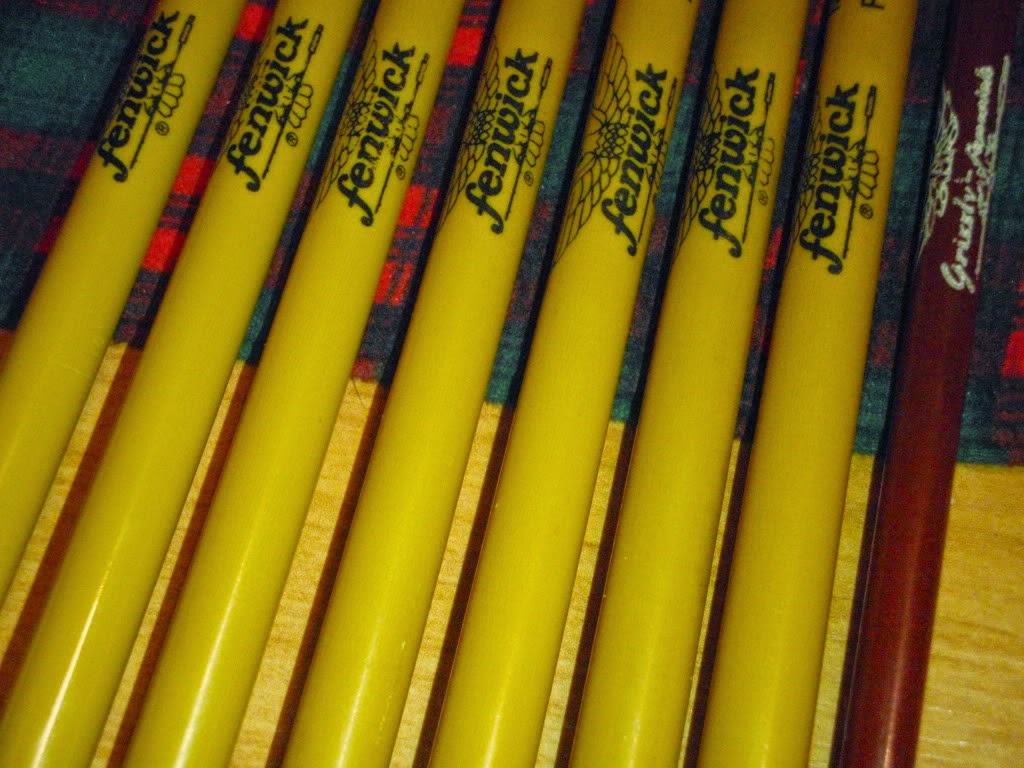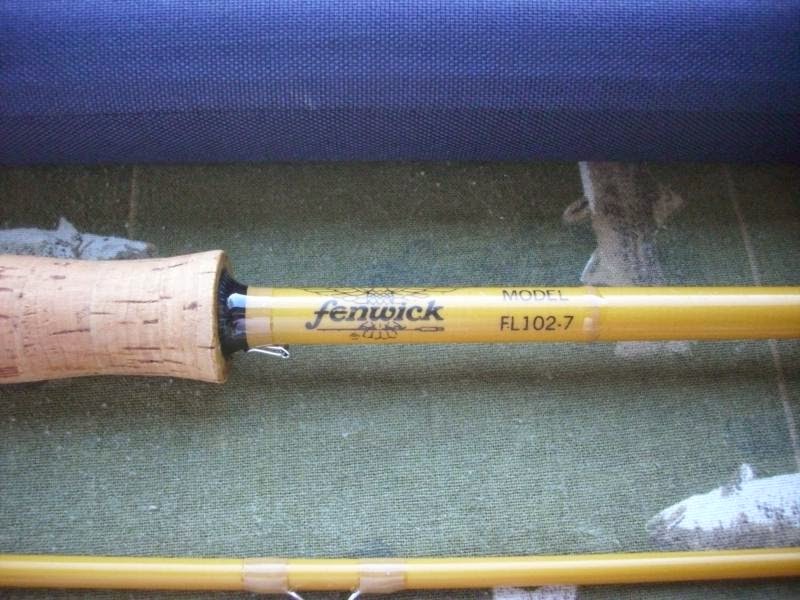 |
| Photo courtesy of Whrlpool on Fiberglassflyrodders.com |
Over the past few years I have begun collecting vintage fiberglass fly rods. Like just about everyone else who starts collecting I grabbed a few Fenwick rods on eBay. Factory built brown/red rods continue to be a desirable, but the prices are rising quickly. These days factory built rods can sell for hundreds of dollars depending on the model and a collectors willingness to part with cash. These rising prices forced me to experiment with the lesser known yellow rods made in the 1970's. The purpose of this blog post is to shed a little well deserved light on the history of yellow Fenwick rods and their usefulness on the water.
Before I begin, I want to steer all of you to Fiberglassflyrodders.com (FFR). I consider the Fiberglass Flyrodders site to be the the best single source for all things fiberglass fly rod and vintage reel. All of the content for this post was taken from information provided by the growing number of member experts at FFR.
 |
| A gaggle of yellow rods with a lone red. Photo courtesy of Fred1969 |
Red or Yellow...What's the Difference?
As mentioned earlier Factory built (red) Fenwick's continue to be some of the best choices in the vintage fiberglass rod catalog. In the 1970's Fenwick decided to offer a line of blanks for rod builders and enthusiasts to build their own rods. In order to avoid confusion in the marketplace Fenwick went with a yellow color (although you will also find a few reds as well) and an FL designation over the factory built FF prefix. The contrasting color and prefix differentiated what was factory built and what was home spun.
Get Ready For the Freak Show...
I think the idea to run a line of blanks for hobbyist was a great, but you'll find that some of the yellow builds on eBay to be nothing short of hideous. Many of the rods have spinning rods guides, foam grips, loose guide wraps.....basically the rods tend to be poorly appointed. Fenwick's name is still on every build, so you'd have to think their brand took a hit from the products flying out of beginners basements. Here is an example of a detail you may find on eBay:
 |
| Reel Seat Screw and Monster Grip |
Notice the size of the cork grip? You need to be Andre the Giant to grip this rod. How about the sheet metal screw holding the reel seat in place? I bet the professional builders at Fenwick at the time were glad their name was on this blank! Don't be fooled by the mis-matched and poorly appointed rods out there, they really are a diamond in the rough.
For Every Action There is a Reaction.
 |
| Fenwick FL786 (6'6" 6/7 weight) |
With a little patience you'll find examples of rods built by a people with taste, skill and style. The rod above is absolutely flawless, even down to the custom rod tube. This rod was purchased for just over $100, well worth every penny.
 |
| Fenwick FL102-7 (8'6" 7 weight) Old Yankee Rodsmith Build |
Yellow Fenwick's are continuing to become more popular. As a result, many quality builders are building respectable rods. You may find what appears to be a real turd on eBay, but you can always strip off the guides and try your hand at tying on a better set. Reel seats and grips are very easy to replace too! In fact, I just purchased a rod off of eBay for $43 that has a loose guide.
So...What's Out There for Me?
The members at Fiberglass Flyrodders have a running list of rod's that they have seen in yellow. This list is by no means comprehensive, so please let me know if you own rods outside of the list and I will add them.
 |
| I wish they were still $10.50 |
- FL72
- FL78-6
- FL84-5
- FL90-5
- FL90-6
- FL96-6
- FL96-7
- FL102-6
- FL102-7
- FL102-9
- FL108-8
- FL108-9
- FL108-10
- FL112-9
Model numbers read like this:
FL = Fly rod blank
Next 2-3 digits = Rod length in inches
Last Digit = Recommended line weight
FL78-6 = 78" (6'6"), 6 weight fly rod
Performance
All of this history and hype doesn't amount to a hill of beans until we talk a little about the performance of the rods. Keep in mind this topic is very subjective.
The yellow Fenwick rods I own are on the heavier side, so I cannot speak to the virtues and characteristics of lighter "trout weight" rods on the list. The heavier yellows I won are powerful, but still have the soft, slow feel of glass. I routinely toss #2 large poppers, 1/0 Clousers and even 2/0 reverse tied bucktails without a hitch. The 2014 season yielded a few large fish all of them were landed with the FL102-7. Here is a decent smallie I landed in early summer.
 |
| A decent fish on the FL102-7 with an 8 wt line |
















